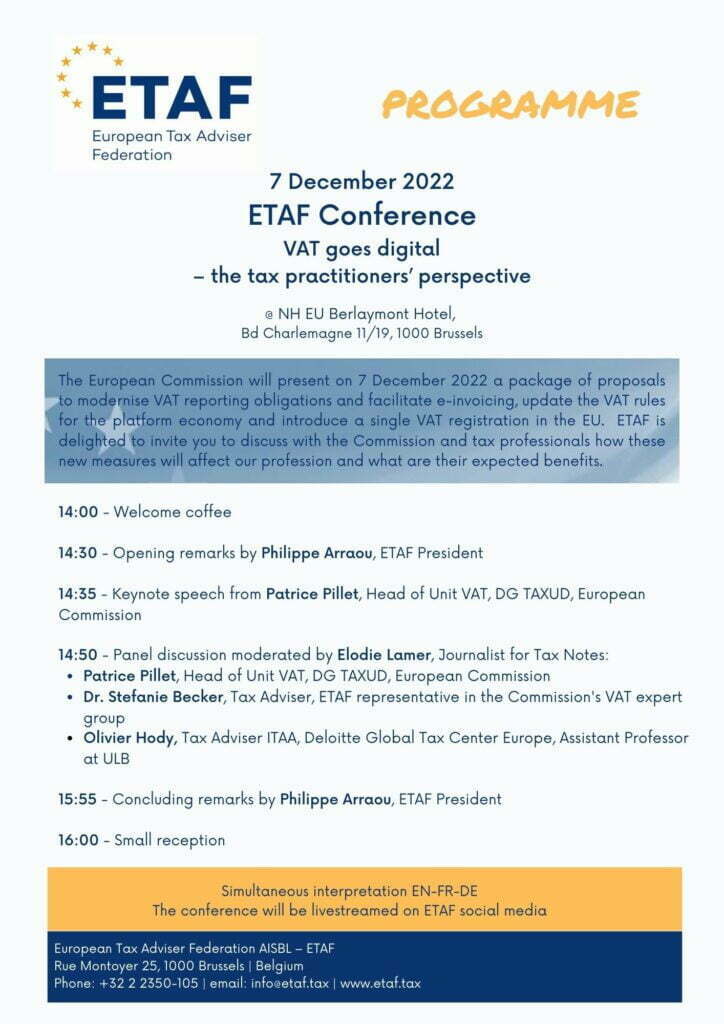The G20 countries reiterated on Wednesday 16 November their commitment to the “swift” implementation of the OECD/G20 two-pillar international tax package. In their declaration adopted at the end of the Bali Summit, they called on the OECD/G20 Inclusive Framework on Base Erosion and Profit Shifting (BEPS) to finalize Pillar One, including remaining issues and by signing the Multilateral Convention in the first half of 2023, and to complete the negotiations of the Subject to Tax Rule (STTR) under Pillar Two that would allow the development of a Multilateral Instrument for its implementation.
On Wednesday 16 November, the OECD published almost 350 pages of comments it received from 34 contributors to the public consultation on a second progress report on the administration and tax certainty aspects of Pillar One. The progress report, published in October, details the rules on the administration of the new taxing right under Pillar One and the tax-certainty related provisions. It follows the release of a first progress report in July. The Inclusive Framework still aims to finalise a new Multilateral Convention for implementation of Pillar One by mid-2023, for entry into force in 2024.
On Monday 14 November, MEPs and MPs from the Czech Republic’s parliament exchanged their views on upcoming and existing EU tax proposals. They heard from the European Commission representatives Benjamin Angel and Maria Elena Scoppio on several soon to be adopted proposals on tax issues. In particular, they discussed the revision of the tobacco directive, the “VAT in the digital age” package, the eighth revision of the Directive on administrative cooperation in tax matters (DAC 8), a faster and safer tax excess refund (FASTER) and the ‘BEFIT’ proposal. During the debate, several Czech MPs expressed their fears about the risk of administrative overload due to these future European tax legislations. MEPs and MPs were also briefed on the state of play of the discussions on the UNSHELL directive as well as on the legislation to transpose the OECD agreement on a global minimum corporate tax rate.
On Monday 14 November, MEPs from the FISC subcommittee of the European Parliament quizzed André Ebanks, Minister for Financial Services and Commerce of the Cayman Islands on the country’s commitments for greater tax transparency and adherence to EU and OECD tax standards. During the hearing, Mr Ebanks reportedly argued that his country respected all rules, had a transparent system, and collected beneficial ownership information. Among other things, MEPs asked Mr Ebanks to assess the OECD international tax agreement and explain how he expected it to affect the Cayman Islands. They also asked for reactions to the EU’s tax haven list and its process of establishment. This hearing will feed into the current work on the own-initiative report on the "Lessons learnt from the Pandora Papers and other revelations", the EP said.
The EU Tax Observatory published on Monday 14 November a note presenting a new way to tax excess profits. The authors propose to tax the rise in the stock market capitalization of energy companies that are headquartered or have sales in the European Union. According to them, it would be easier to enforce than the solidarity contribution agreed by Member States, which would tax profits books in the EU. The authors also argue that it would generate about three times as much revenue as the solidarity contribution. They estimate that a 33% tax on the January 2022 to September 2022 valuation gains of these energy firms would generate around €65 billion in revenue for the EU. If fully and equally redistributed to all EU households, this one-off tax could fund a transfer of €145 per person, they explained.

This newsletter contains information about European tax policies and developments gathered from official documents, hearings, conferences and the press. It does not reflect the official position of ETAF nor should it be taken as a written statement on behalf of ETAF.
